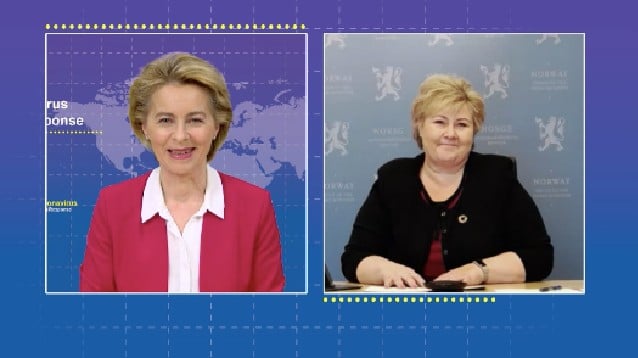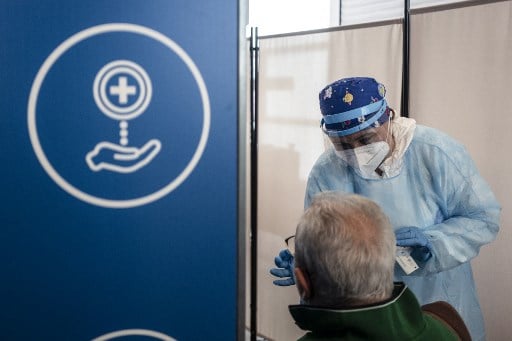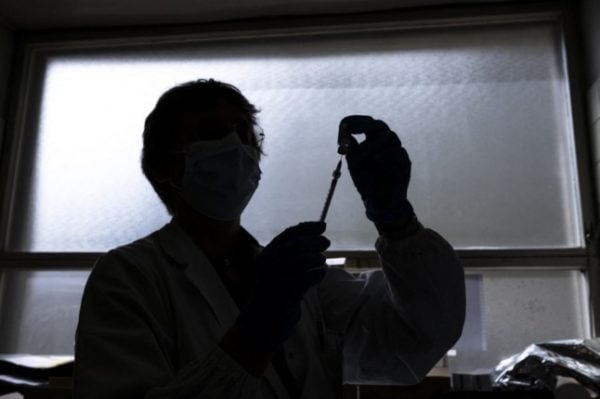We stand #UnitedAgainstCoronavirus. Norway announces additional 1 billion USD to @gavi. To protect ourselves we must protect each other. For our #CommonFuture. pic.twitter.com/tkEExJvk3Z
— Norway MFA (@NorwayMFA) May 4, 2020
WHO
Norway pledges $1bn to global coronavirus vaccination
Norway has pledged $1 billion to help distribute a future coronavirus vaccine to countries around the world at a global donor conference hosted by the European Union.
Published: 5 May 2020 15:24 CEST

Erna Solberg is introduced at the summit by European Commission President Ursula von der Leyen. Photo: Screengrab
The money will go to the Global Alliance for Vaccines and Immunisation, to help fund its work between 2021 and 2030.
“This conference is an expression of one key fact,” Solberg said during the virtual conference. “A global health crisis can only be pushed back through solidarity and through partnerships between governments, strong multilateral organisations, civil society and the private sector.”
“As long as the virus is active somewhere, we are at risk everywhere,” she added. “To protect ourselves, we must in fact protect each other.”
The pledge was part of a total $8 billion (€7.4bn) raised at the pledging event on Monday, which had been co-convened by the European Union, Canada, France, Germany, Italy (also incoming G20 presidency), Japan, the Kingdom of Saudi Arabia (also holding the G20 presidency), Norway, Spain and the United Kingdom.
“Today the world showed extraordinary unity for the common good. Governments and global health organisations joined forces against coronavirus,” European Commission President Ursula von der Leyen said in a press release after the pledges were made.
“With such commitment, we are on track for developing, producing and deploying a vaccine for all.”
In an interview with Reuters, Norway's Prime Minister Erna Solberg said was unfortunate that the US had not pledged any funds.
“It is a pity the US is not a part of it. When you are in a crisis, you manage it and you do it jointly with others, she said.
She also said she regretted the US's decision to pull funding from the World Health Organisation.
“Everyone will certainly evaluate their work at some point and see what could have been done differently,” she told the news agency. “But you do this afterwards, not when you are in the middle of it.”
Norway has provided financial backing to GAVI, a global partnership of private and public organisations focused on increasing access to vaccines in the world's poorest countries, ever since it was founded in 2000.
The $8bn raised fell just a fraction short of the Coronavirus Global Response event, and included a pledge of €1.4bn from the European Commission.
Url copied to clipboard!



 Please whitelist us to continue reading.
Please whitelist us to continue reading.
So the EU with a population of 500 million plus, 27 countries, give roughly the same as Norway?